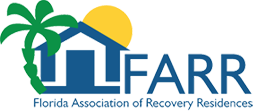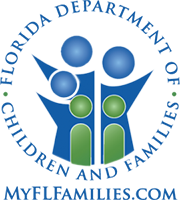Drug Rehab Success Rates
While the pandemic has been a highly publicized health crisis for the last two years, Americans have been battling another ruthless epidemic that is widespread drug and alcohol addiction. In 2020, at the height of the COVID outbreak, almost 92,000 people died from drug overdoses. The National Center for Drug Abuse Statistics estimates that nearly 32 million people have a substance use disorder and/or a co-occurring mental health condition, but only 10% of those people receive treatment each year. Of that 10%, it’s estimated that only 42% of people who attend addiction treatment complete the program in its entirety.
How is Success in Addiction Treatment Measured?
Determining the successfulness of an addiction treatment program can be difficult as there are no defined criteria for what makes a program successful, however, there are evidence based treatments and standards that make success more likely. Completing the entire course of treatment and continuing with follow up care after the completion of a drug rehab program are key factors in staying sober. On an individual level, success in addiction treatment comes down to improved success in these factors:
- Having supportive friends and family.
- Having a safe, stable home to return to.
- Avoiding criminal activities.
- Maintaining steady employment.
- Education or training in a trade.
- Duration and quantity of drug or alcohol use.
- Appropriate management of co-occurring mental health disorders.
- Physical health
Why Do People Relapse After Rehab?
People relapse after rehab for a multitude of reasons, and while this can seem like an unbearable burden to hold, this does not mean that you will never achieve success in addiction recovery. Adjusting to a life without the social and emotional buffer of drugs or alcohol is incredibly difficult and rehashing painful memories in therapy doesn’t make that any easier. Give yourself some grace and take pride in knowing that you are doing what you need to do to achieve your goals, even if it takes a little longer than you want. Remember why you began your recovery journey in the first place and use that as motivation to continue working hard towards recovery. You are capable of difficult things and are worthy of having a happy, healthy life! Don’t let relapse discourage you from achieving that! Maybe all you need is some adjustments to your treatment plan to help you over this speed bump.
Factors That Can Improve Rehab Success Rates
From what we know about addiction treatment, these factors can improve overall rehab success rates:
- Personalized and comprehensive treatment plans– Everyone’s path to addiction is different and unique to their life experiences, and as a result, how their drug addiction treatment needs to be individualized too.
- Assessment and treatment of co-occurring mental health conditions– Addiction and dual diagnosis are risk factors for one another so if you have both only addressing the addiction does not set you up for the greatest success in recovery.
- Environment– A huge benefit to drug rehab is providing you the opportunity to be in a safe and stable environment, free from people, places, and things that no longer serve your best interests.
- Aftercare– Recovery is difficult, the first few months after returning home from rehab usually being the most difficult. That’s why continuing to seek support in meetings and outpatient treatment programs is vitally important.
- Time in treatment– Studies have shown that the more time you spend at inpatient rehab the greater your chances are for a successful recovery. It takes time to learn new skills and to retrain your brain. Experts say that 90 days at rehab is ideal.
What Makes A Drug Rehab Program Successful?https://t.co/EGfkWL5tvj
— The Source Treatment Center (@SourceTreatment) March 22, 2022
What Can I Do if I Relapse After Rehab?
Drug and alcohol addiction is just like any other chronic disease in that relapse can happen. Relapse does not mean you failed and will never achieve success in recovery, what’s most important is how you respond to relapse. For most, receiving continuing recovery programs long into recovery is most helpful. This could be through outpatient addiction treatment, partial hospitalization, 12step programs, or intensive outpatient treatment. A critical part of relapse prevention is understanding the stages of relapse and being honest with yourself when you’re struggling. There is no shame in seeking additional drug addiction treatment even after completion of inpatient rehab so you can have the most success in addiction recovery.
What Makes The Source Different Than Other Rehabs
The Source addiction treatment center strives to provide effective treatment to anyone struggling with substance abuse. Their outpatient programs and inpatient rehab utilize evidence based treatments, dual diagnosis care, cognitive behavioral therapy, and medication assisted treatments to increase their drug rehab success rates. To learn more about what sets The Source above all other addiction treatment programs, please call (800)204-0418 or visit them online at www.thesourcetreatmentcenter.com.

 The Source quite frankly saved my life and got me back on track, never giving giving up on me. When you are thinking about and looking through all of the different places to go for treatment this is the one that should stand out from the rest.
The Source quite frankly saved my life and got me back on track, never giving giving up on me. When you are thinking about and looking through all of the different places to go for treatment this is the one that should stand out from the rest.




























